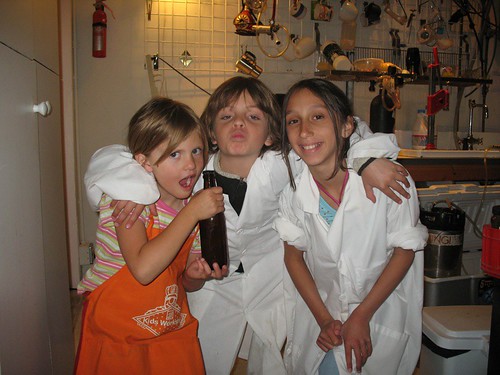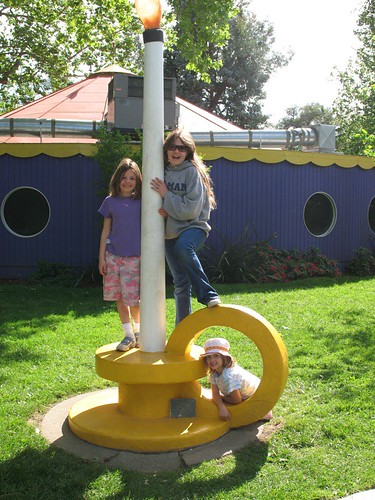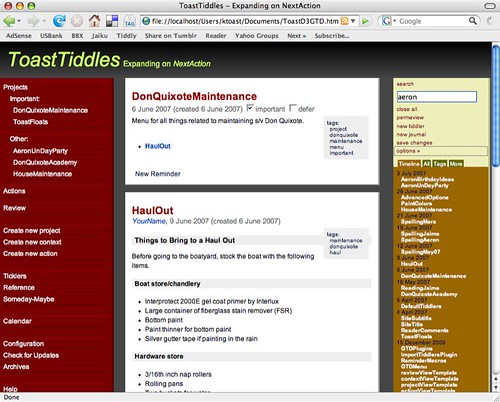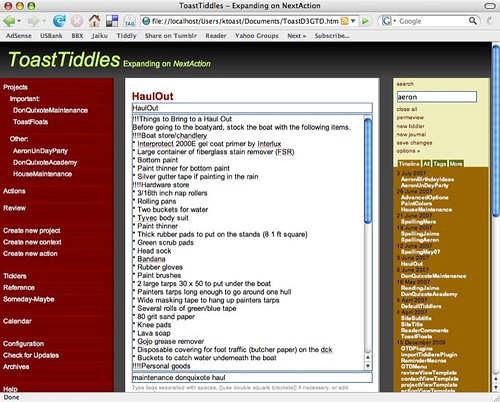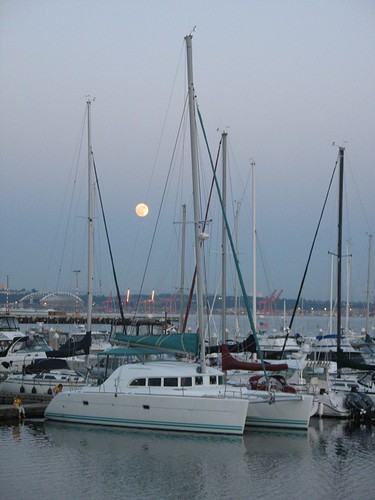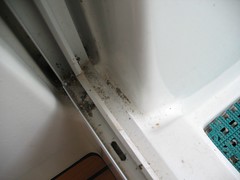Let's start from the beginning. As part of The Artist's Way 12-week course to enlightenment and creative nirvana, I committed to a media diet. No reading, no Internet, no podcasts for one week. I'm an addict. The computer is my life. I was four days into the diet and starving to death so I planned an excursion to the park for the afternoon. We piled into the car with Grandma Sue, towels, and sundry bits and bobs, heading out to Lincoln Park for three hours of no-reading torture.
Really, what the heck is there to do at a park if you are not going to read?
The kids hit the play pool, and I plunked down on a towel to start my incarceration in the land of non-reader hell. Grandma Sue graciously shared her Soduko and we embarked on a solve-it-first challenge. I whipped through it before she was halfway through. It was an easy one and to be frank, she's been doing all the hard and medium hards from the paper for so long that I think she was overthinking it. Okay, 2 hours and 50 minutes left to go. Now what?
Dealt with a semi-hysterical child who lost a pet tag down the drain. "It was my last tie to Philly," sob sob sob. Whatever. The cat is gone. Life is hard. Then you die. Never mind. Forget I said that. Lots of sympathy and back patting later, we moved the family to the playground to warm up. Grandma Sue was by now a little chilled. Californians are like that when they visit Seattle. Very thin blood.
"Look at me!" "No look at me!" The point is there is nothing else to look at. There is a reason reading a book is more interesting than watching your child cross the monkey bars for the fifteenth time. A book has content. There is a plot. There is a purpose. There is sex. Fortunately or unfortunately, there is no sex on the playground at Lincoln Park, and at this point I've only managed to destroy 1 hour and 20 minutes.
"Let's go to the beach" before your mother goes stark raving mad, okay children? Don't argue. Just get your butts down to the beach before I rend my clothes and start enacting the tablet smashing scene from The Ten Commandments.
The beach is great. Lots of things to look at. Lots of things to ... read!! Omigod, relief comes in the form of a very brief fall from grace as I indulge in a thorough examination of the park policies, regulations, map, hours, and pricing for the Colman Pool. Twice. Almost three times but my daughter helpfully caught me in my guilty pleasure and snapped the flier out of my hands in a fit of bombastic self-righteousness.
Word to the wise: Never tell your children the specifics of any self-improvement plan.
For at least a half hour, I diverted myself with dragging large chunks of wood into place to form an annex to the children's fort. I figured they needed a room for the in-laws. Dinner was dried sea weed and half eaten crab shells so it only seemed fair to make the visit from the relatives a bit more comfortable. Crushed my middle finger and scraped off the inside of both arms, but it looked pretty solid and comfortable if I do say myself.
About that time I figured what the house really needed was a good fire. Being the intrepid homeschool teacher, it was a brilliant idea to put play and school together and demonstrate how cave men created fire from nothing. Very smug -- after all we've had roughly 30,000 years of evolution to grow bigger brains and longer fingers, not to mention iPods and the electric mixer -- I gathered materials to hand.
- Long smooth stick
- Old, dry flat wood base
- Lightweight, dry material good for feeding a baby fire
- Little sticks to get it going
- Big sticks to make it really blaze
But wait! My watch alarm went off to signal the end of our excursion and time to go grocery shopping! My three hours are over!!! Woot! Escape. Es Cop Ey!!! "Let's go kids. It's illegal to start a fire on a public beach anyway. Just remembered. Time to go."
They weren't disappointed. Watching me spin a stick for however long I went at it was apparently not nearly as exciting as dashing through the woods back to frozen Grandma Sue at the top of the hill. I worry a bit about the platform... it was starting to get a little warm there toward the end. Really. Another four or five hours of spinning and we might even have started something.

